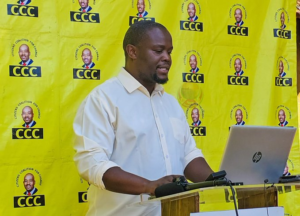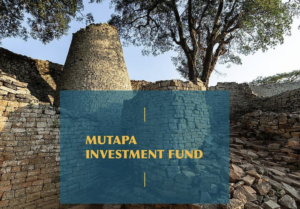A CRY FOR JUSTICE: UNCONSTITUTIONAL INCARCERATION OF SIKHALA SHAKES THE FOUNDATIONS OF DEMOCRACY

In a glaring case that strikes at the very heart of democracy and the rule of law, the continued unconstitutional incarceration of the opposition lawmaker, Sikhala, paints a disturbing picture of the current state of affairs. Sikhala, a firebrand figure legitimately elected by his constituents, now languishes behind bars, a move that not only deprives his electorate of representation but also signals a deep-seated crisis in the nation’s democratic fabric.
This situation raises grave concerns, not just for Sikhala’s personal liberties and freedoms, but for the very essence of justice and governance in the state. His detention is a direct violation of constitutional rights, executed through a judiciary system that appears compromised, captured, and alarmingly politicized. The independence of the judiciary, a cornerstone of any democratic society, is under threat, seemingly coerced into executing political warfare at the behest of the executive.
This executive, portrayed as a collective of ‘pests and parasites’, is described as illegitimate, engaged in acts characterized as vile, terrorist, criminal, and more. Their governance, allegedly marked by plundering, looting, and a blatant disregard for the people’s welfare, raises serious questions about the state of constitutional governance in the country. The judiciary’s complicity in this scenario is not just a betrayal of Sikhala but a red flag for every citizen’s rights and freedoms.
The prolonged detention of Sikhala sets a dangerous precedent. It underscores a chilling reality: that the politicized actions of a corrupt and compromised judiciary could potentially be replicated against anyone, including ordinary citizens. The message is clear: no one is safe from the overreaches of a state machinery that seems more focused on retaining power through illegitimate means than serving its people.
The implications of this are far-reaching. Power, when exercised illegitimately, offers unrestricted access to natural and fiscal resources, often at the expense of the citizenry. The populace is left deprived of essential services, their welfare neglected and their voices oppressed. This environment of terror and oppression starkly contrasts with the vision offered by a reinvigorated opposition. This opposition, described as inventive, resilient, and innovative, promises a governance model that is transparent, accountable, and, most importantly, adheres to the principles of the constitution.
The travesty of Sikhala’s case reflects a broader, more systemic crisis. It points to an irretrievable breakdown in the rule of law, replaced by a ‘rule by law’ where accountability and transparency are effectively exiled. Under such a regime, the laws are twisted to serve the interests of those in power, rather than to uphold justice and protect the rights of the people.
In conclusion, Sikhala’s ongoing detention is not just an isolated incident of injustice. It is a symptom of a much deeper malaise that has gripped the state, one where the rule of law is supplanted by the whims of a ruling class described as corrupt and self-serving. It’s a scenario that should indeed give sleepless nights not only to the citizens of this nation but to all who value democracy and the rule of law worldwide. As this saga unfolds, it serves as a stark reminder of the fragility of justice and the continuous need for vigilance in the face of tyranny and authoritarianism.



